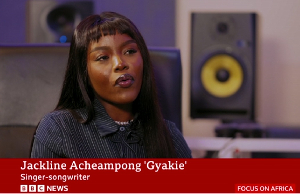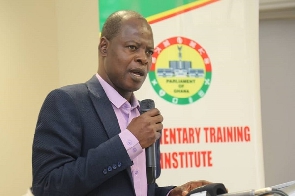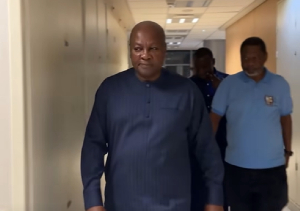The coalition of civil society organisations that faulted government’s Agyapa Royalties arrangement have restated their concerns about the deal, despite being engaged by the Finance Ministry on it.
Convenor of the group, Dr. Steve Manteaw, said despite government’s belated attempts to engage civil society on the agreement, key documents that will enhance the discussions are still being withheld from them.
“We have so far been constrained in our analysis of this transaction by our inability to access the full complement of data and assumptions used in government’s valuation of the royalties being traded.
At our last meeting with the Ministry, some slides containing some data were presented. However, when we requested copies, those particular slides of interest to us were omitted, either deliberately or inadvertently,” Dr. Manteaw told journalists at a press conference in Accra.
The group had initially raised several issues surrounding government’s desire to leverage its future mining royalties for half a billion dollars via shares to be issued by a special purpose vehicle, Agyapa Royalties, on the London Stock Exchange (LSE).
Speaking at the press conference, Dr. Manteaw stated that the coalition remains unconvinced regarding government’s US$1bn valuation of Agyapa Royalties, despite the explanation offered by the Finance Ministry.
“The answer we have heard so far is that the $1bn is the book value for Agyapa, that it is not the actual valuation for the IPO. This doesn’t answer the question. The $1bn valuation reflects the Ghana government’s assessment of its assets assigned to Agyapa, which has been approved by Parliament,” he said.
According to the group, while government had argued that the current approach is the best way to maximise the mineral royalties, it is interested in knowing which other options government had considered before arriving at this conclusion.
“The assertion that government seeks to optimise the royalties presupposes that forward sale of part of the royalties is the best option available to government. We are interested in
knowing what other options were considered by government and the specific trade-offs made to suggest that it is better to sell than wait for the revenues.
In considering the stock market, what other deal structures besides the IPO route did government consider, and can the comparative and benchmarking analysis be shared for review?” Dr. Manteaw stressed.
The decision to incorporate Agyapa Royalties, a wholly-owned government company, in the tax haven of Jersey is an issue that casts a shadow on government’s commitment to fight money laundering, the group said.
Dr. Manteaw said their queries to government on its choice of a tax haven did not yield favourable responses.
“The consensus position of governments around the world is that tax havens inhibit the revenue mobilisation efforts of countries—the reason many regulators around the world are cracking down on tax havens.
For Ghana’s government to do business and hide from tax anywhere in the world is a bad message to the rest of the world, particularly when the country is struggling to defend itself before the European Union, having been blacklisted on account of high money laundering risk,” the group said.
The group reiterated its call to government to suspend the deal and ensure a national conversation that will lead to the buy-in of the citizens since the mineral resources belong to the citizens and they must be accorded a say in the decision.
Business News of Wednesday, 9 September 2020
Source: thebusiness24online.net
CSOs restate concerns about Agyapa Royalties deal
Entertainment












